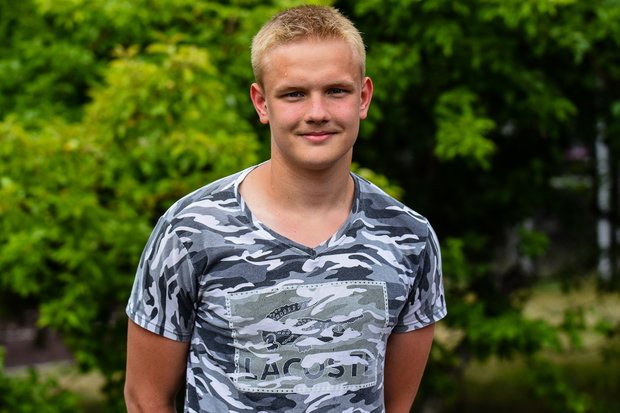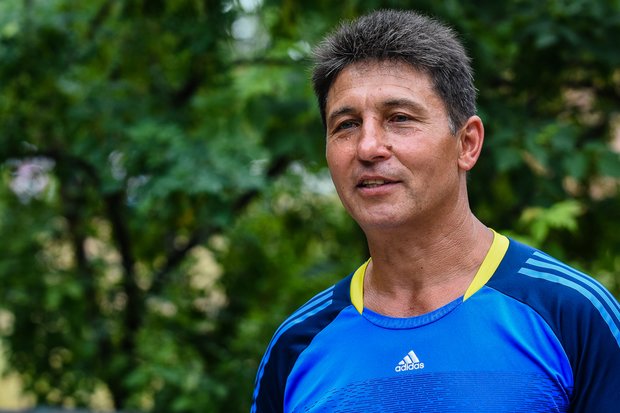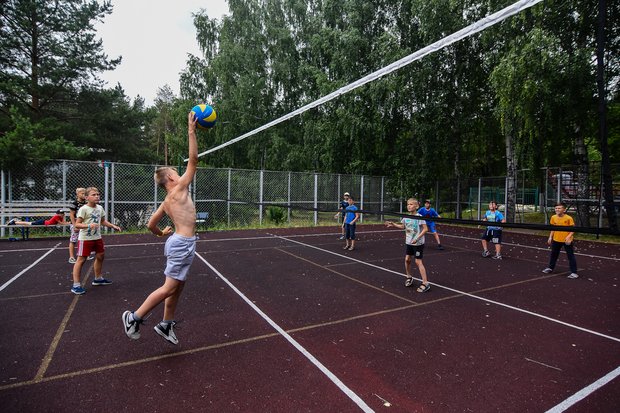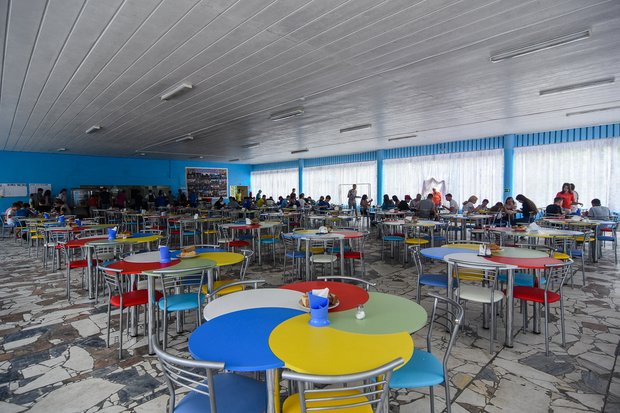Olympiets camp: how they train future champions
The sports camp Olympiets in Nizhnekamsk will receive 650 children this year. All of them are professionally engaged in sport, so in the summer they do not want to waste time and they come here to train actively.
''I spend almost the whole summer here, so I'm ready for the competitions''
In the Ship Grove, the blue gates of the camp are decorated with five Olympic rings, as if reminding boys and girls about the big dream of every athlete. If children come to an ordinary health camp to rest, then they go to Olympiets for great achievements. Now there live 227 children who are divided by sports — boxers, judokas, wrestlers, basketball players, track and field athletes, skiers and hockey players. Among them there is Maksim Ponyagin, who goes to Olympiets since aged seven. For the first time his parents enrolled him in the camp when the boy had just started playing basketball. He recalls that when he got in the Olympiets team, it was hard, but he did not give up and it has been 10 years since he has not missed a single summer. Maksim graduated from a sports school, but continues to keep himself in shape, as he wants to enter the Volga State Academy of Physical Culture, Sports and Tourism.
''The camp taught me a lot. From the sports point of view, it allows me to keep in shape. I'm training, preparing for the season. That is, the season begins in September, and since I spend almost the whole summer here, I am ready for the competitions,'' Maksim shared with us.

Getting into Olympiets is a matter of prestige
''It is enourmous difference between sitting three months at home and training here,'' said coach in track and field athletics Vladimir Bykov, for whom it has become a tradition to come here with a team of athletes every summer.
''We would continue to train in the city, but it is difficult to gather them more than two times a day there, but here, with all physical activities, it turns out almost four trainings. There are very good conditions, for example, we run on the sand — we do jumps, running exercises, so the foot is very well strengthened. At the stadium or in the arena there is so much sand. We come to strengthen health, but not to do training for the sake of training,'' Vladimir Bykov explained.

In the schedule of children, there are two trainings a day — before lunch and in the evening. All conditions are created for sports — three football fields, track and field stadium, three volleyball courts, tennis court, basketball court, devices for physical exercises, pavilion for combat sports, two swimming pools, sauna. Children go to the camp together with coaches, so they take only those children who are seriously involved in sports, so getting into Olympiets is a matter of prestige.

Sports nutrition from two menu complexes
Since this year, the camp has introduced a new system of sports nutrition — now the child has a choice between two menu complexes. Due to this, children decide themselves what they will eat every day.
''There is no such camp in Nizhnekamsk. Did you notice the children walking around with a blue or yellow bracelet? They are given a menu, they choose and say that, for example, today they want to eat by the ''blue'' complex and wear blue bracelets. Last year the children served the table themselves, and now they take a tray, the cook sees the bracelet and gives them the appropriate dish,'' said senior teacher of the camp Olympiets Lyudmila Panyagina.

Despite the fact that sport is given a lot of time, children attend clubs, skits, performances, dance battles here, so the children get a comprehensive development. Next year, the camp Olympiets will be 50 years old. All this time it has been a subordinate camp of Nizhnekamskneftekhim, the company helps to maintain the entire infrastructure and allocates funds for the programme. The cost of a trip to the camp is 21,000 rubles, but parents who work at NKNK need to pay only 3,300 rubles, the rest of the amount is covered by the company.